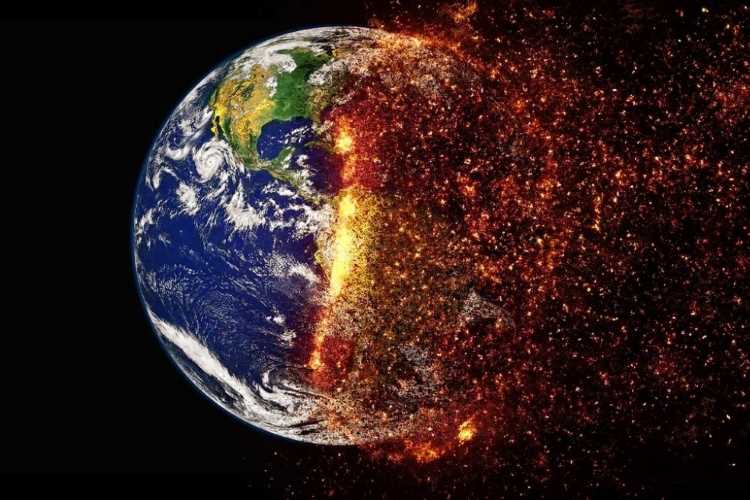The world is preoccupied with the new coronavirus disease. This is understandable as humankind hasn’t witnessed a pandemic of this proportion in the last 100 years. As this article is being written, the disease has claimed 2,03,622 lives and infected more than 2.92 million people. But the way it has taken the focus away from other threats to human life and wellbeing is disconcerting.
In a world struggling to cope with the Covid-19 pandemic, climate crisis looks like a distant threat. Nature has given the world a glimpse of what it would have been without industrial pollution caused by fossil fuels. As the near-global lockdown forced factories to close and cleared the roads, air became cleaner, world’s most polluted rivers became pristine once again and animals started reclaiming highways and towns.
READ: Post-Covid economy: Lessons for India from global manufacturing hubs
The Covid-19 pandemic may lead to the steepest fall in global carbon emissions on record, say analysts with global financial services firm Goldman Sachs. The coronavirus outbreak, first detected in China’s Wuhan province in December last year, has forced most world nations to resort to lockdowns or other confinement measures. As a result, carbon emissions fell dramatically – a Goldman Sachs report says carbon emissions could fall by 5.4% in the current year.
World Meteorological Organisation warns that the fall in greenhouse gas emissions due to the new coronavirus outbreak is just short-term good news. WMO expects emissions to return to normal as the global economy begins to recover. The world nations have committed $3 trillion for post Covid-19 recovery and the lifting of the lockdown may result in increased industrial activity and higher emissions. The aftermath of the global financial meltdown in 2008 saw countries like China adopting energy intensive measures for economic recovery, boosting carbon emissions.
READ: Make PDS more inclusive, give ration cards pan-India validity
Carbon dioxide levels in atmosphere rose 18% between 2015 and 2019 compared with the previous five years, shows WMO’s Global Climate 2015-2019 report. Data indicate that CO2 levels could have topped 410 ppm by the end of 2019. The gas will remain for centuries. CO2 levels in the atmosphere have increased by 26% since 1970, resulting in an increase of 0.86 degrees Celsius in the world’s average temperature. It is estimated that the earth is 1.1C hotter than the pre-industrial era and the last five years were the hottest on record.
The pandemic has resulted in the postponement of some big-ticket climate events and policy deliberations scheduled for this year. Among them is the United Nations-sponsored Conference of Parties, which was scheduled to take place in Glasgow in November. The COP26 summit has been postponed to next year.
READ: Covid-19: How Kerala fought the deadly virus
The climate crisis is an even deeper emergency than the coronavirus pandemic. Degradation of environment and rising pollution levels make humanity vulnerable to viruses and extreme weather events. The fall in air and water pollution due to the lockdown is a temporary phenomenon. The world should not lower the guard in the fight against climate change by drawing a false sense of achievement from such changes.

